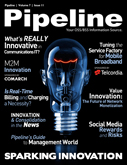|
|

Similarly, American Express launched a peer-to-peer payment service, Serve, on March 29. However, the Serve online payment system is equipped to integrate NFC technology, which is truly innovative.
Speaking of NFC, Apple announced it will not include NFC chips in the iPhone5 or iPad2 as previously reported, but that hasn’t slowed down Mastercard, Visa, Google, Amazon, Microsoft, or Samsung.
|
|
Major players are embracing NFC strategies. |
|

 AT&T/T-Mobile Merger
AT&T/T-Mobile Merger
It’s impossible to review the events of this past month without discussing the proposed AT&T/T-Mobile merger. If approved by federal regulators, the new AT&T would encompass the majority of the U.S. market, which makes the last remaining competitors, especially Sprint, uneasy to say the least.
AT&T points out that telco
consolidations traditionally result in
|
|
|
|
|

All of these major players made announcements in the past month regarding NFC strategies.
Google joined the NFC forum as a principal member, and supports NFC in Android phones like the Nexus S. Microsoft reported they have NFC plans in the works for the next iteration of the Windows 7 Phone software. Amazon made Samsung announced that, with Visa’s payment processing technology, it will release a NFC-enabled handset at the 2012 Olympics. And Mastercard has certified an NFC solution on smart SIM cards from Gemalto.
James Anderson, vice president, Mobile, MasterCard Worldwide, explained the scope of their NFC offering: "Leveraging the interoperability of MasterCard PayPass, Gemalto's effort will enable cross-border mobile NFC payment, adding ease to the fast-paced lifestyles of more and more consumers across the world."
NFC will likely replace credit cards in the future, but how soon is anyone’s guess. The news this month points to a nearer date than the some analysts have projected.
|
|

cheaper rates for consumers, but not
everyone is buying that. In fact the
chorus of voices who say the merger
would be bad for consumers grows
louder everyday. Other analysts, like
GigaOm.com’s Om Malik, say it’s bad for
innovation as a whole. “It doesn’t
matter how you look at it; this is just
bad for wireless innovation, “ said Malik
in an article March 20.
In a C-Span interview aired April 1, the FCC’s Michael Copps expressed concern over a “a world where two companies are going to control 80 percent of the spectrum.”
This merger is a big, big deal for the communications industry and the U.S., and we will continue to read about it in the news for the next year.
Century Link/Qwest Merger
Consolidation on the wireline side of telecommunications also made news this month, as the FCC approved the CenturyLink/Qwest merger. The $12 billion deal unites the third- and fourth-largest traditional telcos in the United States, and might signal the FCC is willing to approve such major transactions.
|
|
|






